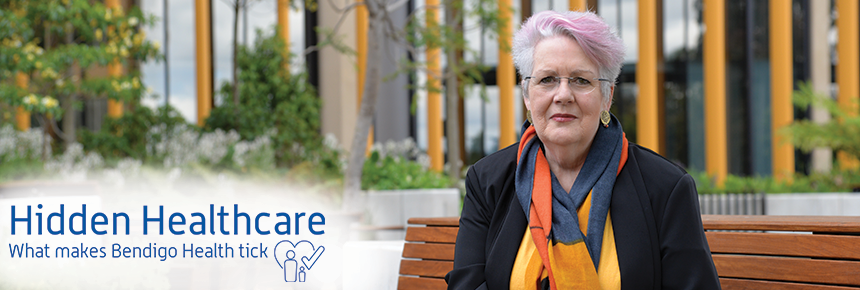 Volunteer social worker and family support worker Jan Porter has helped hundreds of Karen women navigate the health system in Bendigo over the past decade.
Volunteer social worker and family support worker Jan Porter has helped hundreds of Karen women navigate the health system in Bendigo over the past decade.
Jan Porter recalls the phone call she received from a concerned Buddhist monk, informing her that a Karen mother was going to have a deformed baby.
“When I went to see the woman, she was so distressed. There was nothing wrong with the baby,” she said.
“She’d had an ultrasound, seen the images and didn’t understand what an ultrasound was so thought it was a real picture of her baby.”
It’s 2009 and Jan and her husband, Terry Smith, had begun volunteering their time to help the small but growing refugee community adjust to their new lives in Bendigo.
Unbeknown to Jan, the ultrasound appointment would trigger the start of a long and emotional journey between herself and birthing women in the Karen community.
“Whenever anyone else was pregnant, I kept getting calls to help,” she said.
At her peak, Jan was supporting 11 pregnant women at one time, taking them to appointments at Bendigo Health and to Melbourne if required.
“In the early days, the Karen community didn’t have cars or phones, plus there was no interpreters at that stage. I understood how vulnerable and disconnected from our scientific medical system these women felt,” she said.
“They needed someone to help them understand what was happening.”
Ninety-seven births later, Jan has developed such a close bond with the Karen community, she’s referred to as ‘Pi Pi’, or grandmother.
She’s also become part of the furniture in the birthing suites at Bendigo Health and has seen the clinical practice become more accustomed to the cultural sensitives of birthing Karen women that might contradict medical advice.
“These women don’t like to drink cold water or shower after giving birth as they don’t want to get their hair wet and they like to wrap themselves in warm blankets,” she said.
“The midwifery staff have been amazing; they have really embraced it. We’ve had traditional midwives from the Karen community come in when some women have given birth and some Bendigo Health midwives have come in to see how traditional births work to enhance their own knowledge.”
The COVID-19 pandemic has been particularly tough for Jan as like all volunteers, she’s been unable to attend the hospital due to visitor restrictions.
“It’s been tough because I had four or five women with at risk pregnancies that I was worried about, but you have to put your faith in the system,” she said.
For more information on volunteering at Bendigo Health, visit: https://www.bendigohealth.org.au/volunteering/